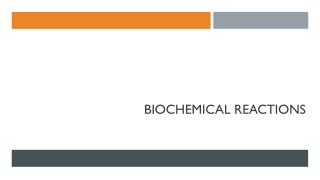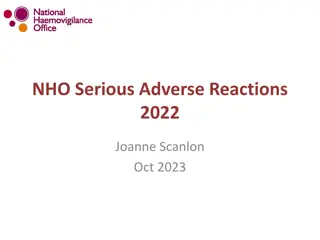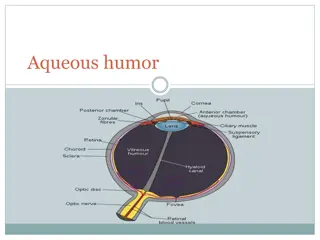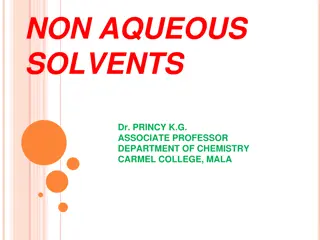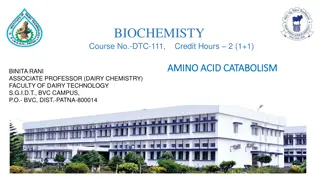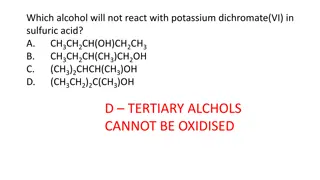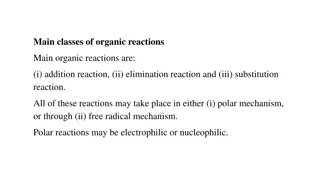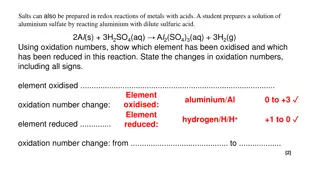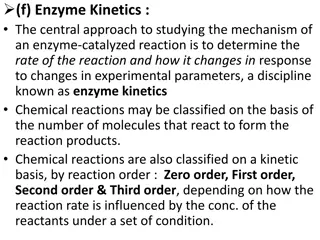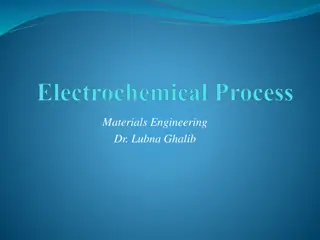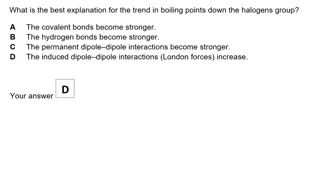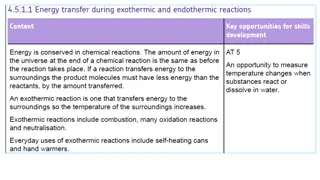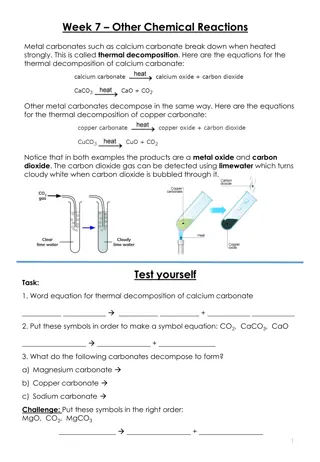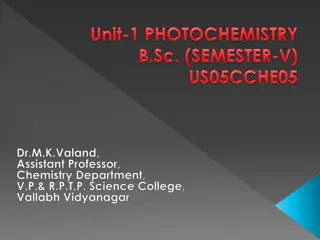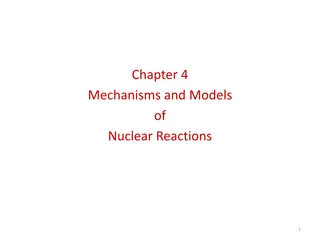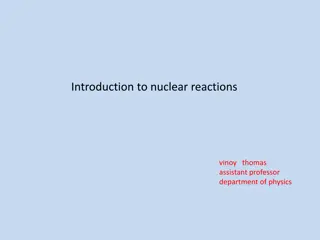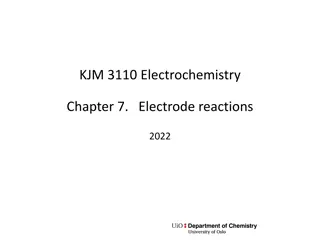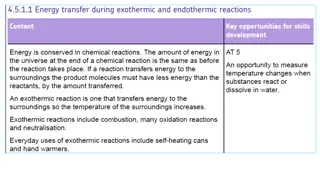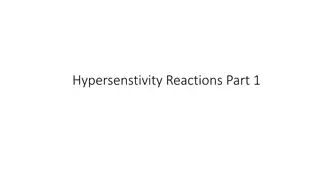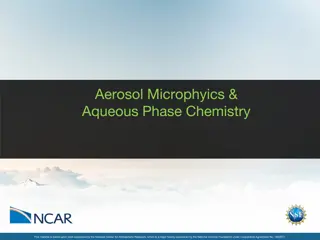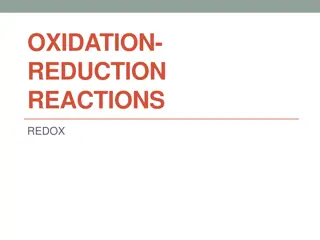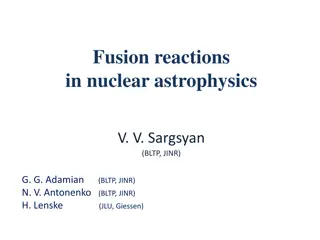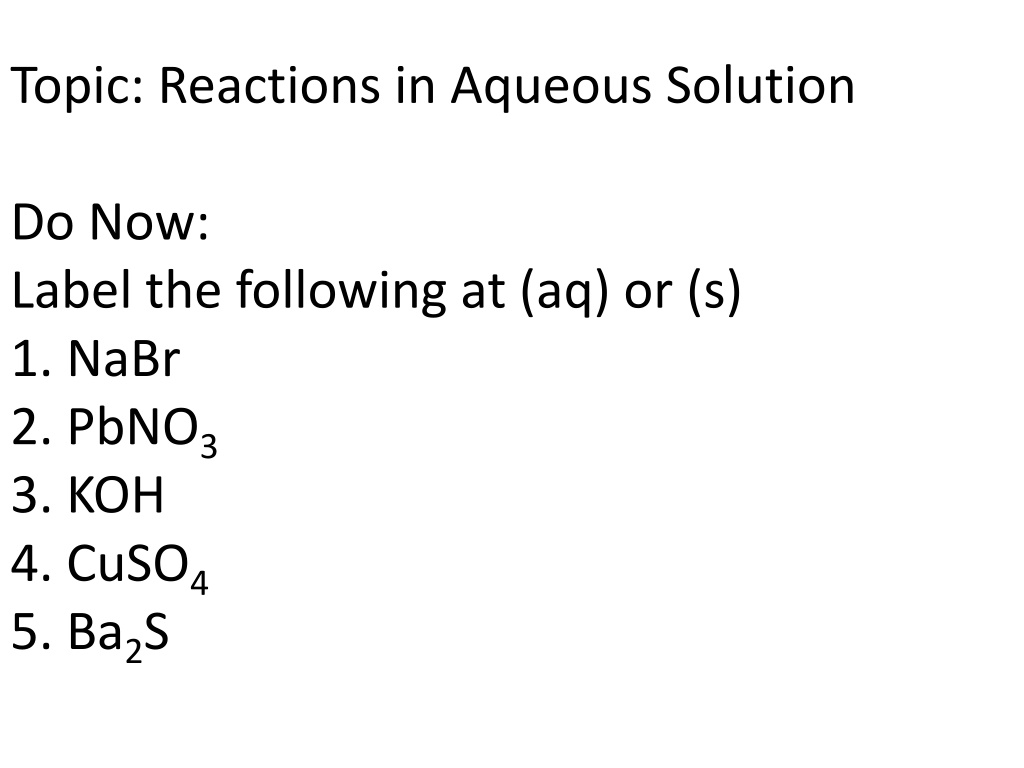
Understanding Reactions in Aqueous Solutions
Explore the reactions in aqueous solutions, including the formation of precipitates and the behavior of ionic and covalent substances when dissolved in water. Learn about electrolytes, conductivity, and how compounds split into ions or molecules.
Download Presentation

Please find below an Image/Link to download the presentation.
The content on the website is provided AS IS for your information and personal use only. It may not be sold, licensed, or shared on other websites without obtaining consent from the author. If you encounter any issues during the download, it is possible that the publisher has removed the file from their server.
You are allowed to download the files provided on this website for personal or commercial use, subject to the condition that they are used lawfully. All files are the property of their respective owners.
The content on the website is provided AS IS for your information and personal use only. It may not be sold, licensed, or shared on other websites without obtaining consent from the author.
E N D
Presentation Transcript
Topic: Reactions in Aqueous Solution Do Now: Label the following at (aq) or (s) 1. NaBr 2. PbNO3 3. KOH 4. CuSO4 5. Ba2S
Formation of a precipitate 2 aqueous solutions mixing to produce a new compound that is insoluble (a solid)
Demo KI + PbNO3 KNO3 + PbI AgNO3 + NaCl AgCl + NaNO3
Reactions in aqueous solution Many reactions, esp. many double replacement reactions, occur in water. What happens when substances dissolve in water? Depends on if they are ionic or covalent.
Dissolving an Ionic Substance in water it splits into the ions that make up the compound Example: NaCl(s) Na+(aq) + Cl-(aq) CaCl2(s) Ca2+(aq) + 2Cl-(aq) AlCl3(s) Al3+(aq) + 3Cl-(aq) The ions are spread out among the water molecules.
Lets check to see if there are really ions Conductivity = conduct electricity Need charged particles (ions) to travel
Electrolytes = compounds that conduct electricity Ionic compounds that dissolve in water are electrolytes
Dissolving a Covalent Substance in water split into individual molecules NOT IONS Ex: sucrose C12H22O11(s) C12H22O11(aq) The sugar molecules are spread out among the water molecules.

